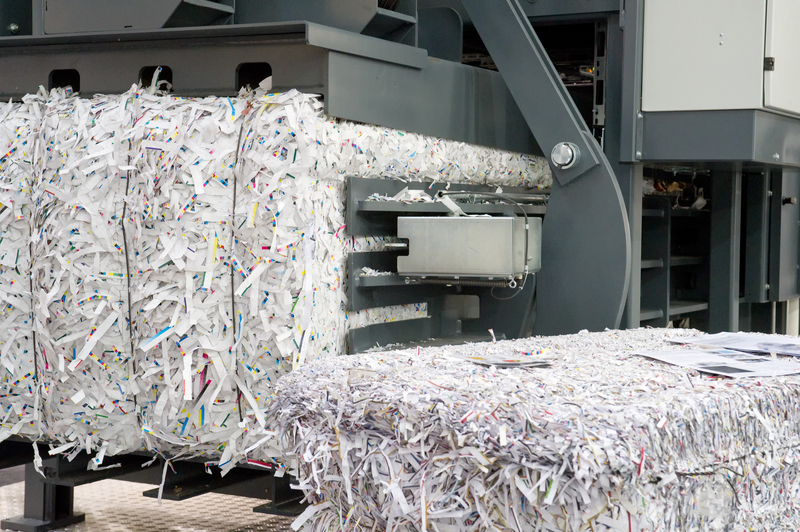Proactive Approaches to Reduce Plastic Waste
Plastic pollution is a growing global concern. Over the past few decades, plastic waste has overwhelmed our landfills, polluted our oceans, and threatened wildlife and human health. Addressing this crisis requires not just reactive solutions but proactive approaches to reduce plastic waste. This comprehensive article explores innovative strategies, policies, community efforts, and personal actions that can significantly minimize the plastic footprint on our planet.

Understanding the Plastic Waste Problem
Globally, over 300 million tonnes of plastic are produced every year, and less than 10% gets recycled effectively. The rest ends up contaminating our environment, breaking down into microplastics that persist for hundreds of years.
- Single-use plastics like bags, straws, and packaging are top contributors to waste.
- Lack of infrastructure in many regions hinders proper collection and recycling of plastics.
- Plastic pollution affects marine life, soil health, and ultimately enters the human food chain.
It is crucial to implement preventive measures and effective solutions to mitigate the harmful effects of plastic waste.
Why Proactive Strategies Matter
Most traditional waste management methods, such as landfilling and incineration, are reactive. They address waste only after it has been created. In contrast, proactive approaches to reducing plastic waste seek to tackle the issue at its source, preventing the generation of plastic waste in the first place and promoting circularity.
Key Proactive Approaches to Plastic Waste Reduction
1. Embracing the Circular Economy
A circular economy is a model that prioritizes longevity, reuse, repair, and recycling, thereby reducing the need for new plastic production. In a circular economy:
- Products are designed for reuse or longevity, minimizing single-use plastics.
- Packaging is replaced with compostable, biodegradable, or reusable alternatives.
- Industrial symbiosis encourages businesses to use each other's by-products, reducing overall waste.
**Implementing a circular economy reduces demand for virgin plastic and supports a closed-loop system, dramatically cutting plastic waste.**
2. Policy Innovations and Legislation
Government action is vital in guiding communities and industries toward plastic waste elimination. Notable policy interventions include:
- Single-Use Plastic Bans: Many countries and cities have enacted bans or taxes on plastic bags, straws, utensils, and packaging.
- Extended Producer Responsibility (EPR): Regulations that require manufacturers to take back, recycle, or safely dispose of the plastic products and packaging they produce.
- Deposit Return Schemes: Systems where consumers pay a deposit on bottles and containers, which is refunded upon return for recycling, boosting collection rates.
Pro-active, forward-thinking laws send a strong signal to both consumers and manufacturers to seek alternatives and participate in plastic waste reduction.
3. Corporate Social Responsibility and Industry Action
Businesses play a significant role in curbing plastic waste generation. Many leading companies are now integrating sustainability into their core strategies by:
- Adopting eco-friendly packaging such as plant-based or compostable materials.
- Redesigning products for minimal or no packaging.
- Implementing take-back and reuse programs for containers and packaging.
- Investing in new technologies for biodegradable plastics and improved recycling processes.
Industries that innovate and lead by example not only enhance their brand reputation but also drive industry-wide shifts toward reduced plastic leakage.
4. Community-Driven Initiatives
Communities and non-profit organizations are at the forefront of local efforts to fight plastic waste. Proactive community actions include:
- Organizing plastic-free events and clean-ups in parks, rivers, and beaches.
- Hosting workshops on zero-waste lifestyles and sustainable alternatives.
- Launching local recycling or upcycling centers to extend the life of plastics.
*Grassroots participation inspires cultural change and fosters responsibility among individuals, making the movement towards plastic waste prevention more inclusive and sustainable.*
5. Consumer Awareness and Behavioural Change
Individual action is powerful. When consumers opt for sustainable choices, it compels businesses to respond. Some pro-active measures consumers can take to reduce plastic waste include:
- Avoiding single-use items by carrying reusable bags, bottles, and utensils.
- Supporting brands that use sustainable packaging.
- Participating in or initiating local recycling drives.
- Educating others about the consequences of plastic pollution and available alternatives.
Every small change adds up, setting new trends and expectations that ripple through society.
6. Technological Innovations for Plastic Reduction
The role of science and technology in minimizing plastic waste is transformative. Some breakthroughs include:
- Bioplastics made from renewable sources like corn starch or algae.
- Advanced recycling techniques such as chemical recycling and enzymatic breakdown of plastics.
- Smart packaging that decomposes naturally or can be easily separated for recycling.
- Use of machine learning and AI in optimizing recycling processes and supply chains.
These innovations represent a proactive leap beyond conventional methods, positioning us for a future with drastically less plastic waste.
Case Studies: Success Stories in Proactive Plastic Waste Management
Sweden's Deposit Return System
Sweden boasts one of the world's most efficient deposit-return schemes. With a return rate of over 85%, Swedes are incentivized to return beverage bottles and cans. This not only boosts recycling but also drastically cuts down on plastic waste entering the environment.
Rwanda's Complete Plastic Bag Ban
Since 2008, Rwanda has had a nationwide ban on plastic bags. The proactive measure was accompanied by investments in local alternatives, public education campaigns, and strict enforcement. The country's capital, Kigali, is now one of Africa's cleanest cities, illustrating the power of comprehensive government action and public compliance.
Loop: A Business Model for Reusable Packaging
Loop has partnered with global retailers and brands to deliver products in reusable packaging that can be returned, cleaned, and refilled. This system shifts from single-use to a circulating, reusable model, closing the loop on packaging waste.
How You Can Implement Proactive Approaches in Daily Life
Adopt a Zero-Waste Mindset
- Plan shopping to avoid items with excessive packaging.
- Opt for refill stations for household essentials.
- Purchase in bulk to minimize packaging waste.
Choose Biodegradable or Reusable Options
- Select products with compostable packaging when possible.
- Use cloth bags, stainless steel drinking straws, and glass food containers instead of plastic alternatives.
Support Legislation and Community Efforts
- Support local bans or levies on single-use plastics.
- Join or volunteer in community clean-up and awareness programs.
Educate and Advocate
- Encourage friends and family to adopt plastic-free habits.
- Share information on the detrimental impacts of plastic waste on social media.
- Advocate for more robust recycling infrastructure in your locality.
Challenges and Barriers to Proactive Plastic Waste Reduction
While the road to a plastic-free future is promising, several obstacles persist:
- Transitioning to alternatives can be costlier upfront for businesses and consumers.
- Global disparities in waste management infrastructure hinder progress in some regions.
- Consumer convenience and habits can be hard to change.
- Lack of standardized policies and enforcement slows down broader adoption.
*It is vital that all stakeholders, from policymakers to individuals, collaborate to overcome these barriers for long-lasting change.*

The Future: Scaling Up Proactive Solutions
The solution to the plastic pollution crisis lies in scaling up proactive approaches to reduce plastic waste. This requires:
- Strong international collaboration on plastic waste policies and standards.
- Investment in research and development for better recycling and alternative materials.
- Partnerships between governments, businesses, and civil society to drive innovation and awareness.
- Integrating plastic reduction into education curricula to raise conscious future generations.
With momentum building--from city halls to boardrooms, from classrooms to kitchens--the vision of a cleaner, less wasteful world is within reach.
Conclusion: Your Role in Reducing Plastic Waste
The battle against plastic pollution is urgent and requires collective, proactive effort. By adopting a proactive approach to reduce plastic waste--from embracing innovative technologies, advocating for strong policies, supporting sustainable businesses, to making conscious choices--we all have the power to make a significant difference. Remember, every action counts. Together, we can secure a healthier, more sustainable planet for generations to come.
Start today:
- Refuse unnecessary plastics.
- Reuse what you already have.
- Recycle properly--and encourage others to do the same.
- Choose brands and leaders who champion sustainability.
- Get involved in local and global initiatives to drive change.
With determination and collective responsibility, we can turn the tide on plastic pollution and create a brighter, cleaner, and greener future.